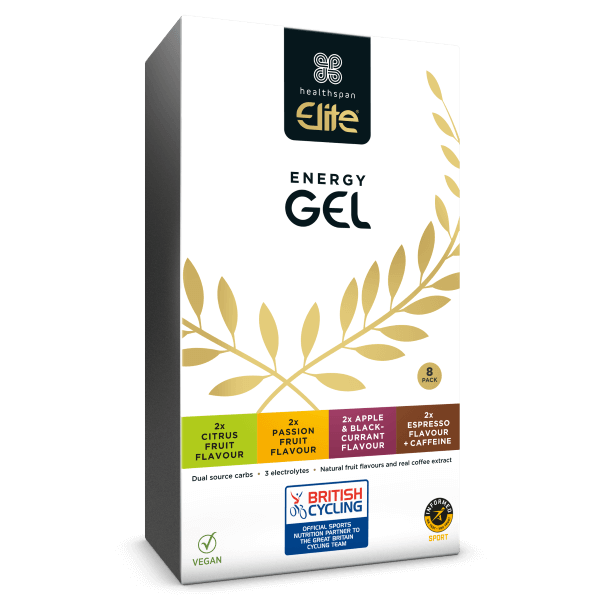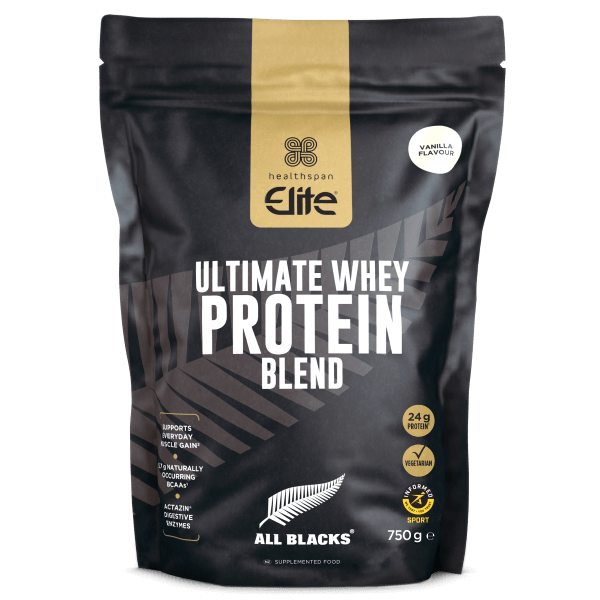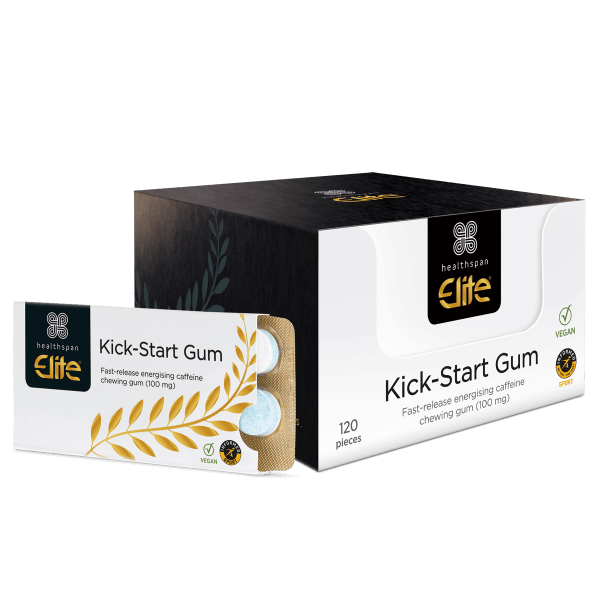Sports Nutritionist Rob Hobson on how swimmers can best fuel their training and keep up their nutrient intake for optimum performance.
🕒 6 min read
Elite swimmers typically have between 1 and 3 training sessions each day. Training can vary in intensity and volume, and include land-based activities such as yoga, resistance training, core training and circuit training.
Training cycles switch between periods containing frequent sessions of low to moderate intensity, along with a smaller number of high-intensity sessions, through to periods with a greater focus on high-intensity work.
Nutritional requirements vary depending on the intensity and type of training, to meet the swimmers' session needs as well as supporting recovery and adaptation between sessions.
A periodised approach works best. This means adjusting energy and carbohydrate intake to meet fuelling needs and body composition, and also arranging carbohydrate, fluid and protein intake around specific sessions to optimise training performance and adaptation.
This approach may include a high-quality protein snack immediately after a gym-based session, or restricting carbohydrate intake the evening before a fasted low-carbohydrate session, to expose muscle to a greater training stimulus to promote metabolic adaptations.
A swimmer's nutritional intake is individual to their training schedule and session focus across the week. However, the nutrients they need and the supplements they may consider taking are broadly similar for all swimmers.
Carbohydrate intake
As with all athletes, carbohydrates are an invaluable part of a swimmer's diet. Carbohydrate in the form of muscle glycogen is required to fuel moderate-to-high intensity activity in the pool. It has been shown that a carbohydrate intake of 6g per kg of bodyweight per day is enough to meet the requirements for glycogen restoration when undertaking a moderate training load. If training volume increases, then so will the amount of energy required and the carbohydrate intake.
Carbohydrate intake should be periodised to meet the needs of your training sessions. A morning aerobic session in the pool will require a good carbohydrate intake the evening before, as well as during the day to help aid recovery.

Elite Energy Gel - Mixed Pack
Carb and electrolyte boost developed with British Cycling
- Delivers fast-acting energy
- 25g fast-acting carbs and 3 electrolytes
- Apple & Blackcurrant, Citrus Fruit, Espresso (with Caffeine) and Passion Fruit
Intense sessions will need more rapid refuelling, especially when there is less than 8 hours between sessions. Aim for 1g of carbohydrate per kg bodyweight each hour for the first 4 hours, before resuming a normal intake.
If the morning session involves training with low glycogen stores to help adaptation, carbohydrates should be restricted the evening before. Carbohydrates should then be a priority after training and then during the rest of the day to aid recovery.
Not all carbohydrates are the same, however. Before, during and after training sessions, swimmers should focus on white carbohydrate foods such as white pasta, rice, bread and couscous, as well as sports drinks, smoothies and gels, as these are more rapidly digested in the body to promote rapid fuelling.
Outside of training the focus should be on more complex high-fibre carbohydrates, such as brown rice, pasta, and bread.
Training days can vary across the week. What and how much someone should eat depends on the individual's training volume, appetite, age and body composition. Everyday life also needs to be taken into consideration, especially if the athlete doesn't have a lot of time to sit down and eat between work and training.
This is an example of what a training diet might look like on a day involving a swim session in the morning and a gym session in the afternoon.
- Pre-training AM: 2 slices of toast with jam
- Post-training (breakfast): Eggs on toast plus a glass of milk
- Snack: Yoghurt with canned fruit in juice
- Lunch: Tuna pasta salad plus fruit smoothie
- Post-training snack (gym): Protein shake plus dried fruit bar
- Dinner: Chicken stir-fry with a variety of vegetables plus large serving of rice and a bread roll
Protein intake
Protein is required by the body to help rebuild and repair muscle tissue, and is an important consideration in the achievement of optimal adaptation. The periodised training program of a swimmer includes multiple activities such as endurance exercise, intermittent sprints and resistance training.
A swimmer should aim for 1.2-1.6g protein per kg of bodyweight each day. In the case of a 75g athlete this would be up to 120g of protein daily.
Timing and quality of protein is a priority. To maximise the protein response to training swimmers should consume 20-25g of high-quality protein soon after a key workout or resistance training session. Across the day a similar amount should be consumed at 4-5 opportunities as snacks, with meals and before bed, to maximise the training response.
Good-quality protein includes meat, poultry, eggs, tofu, Quorn and beans. Whey protein powders are a convenient option after training and during the day, as this is digested quickly. Casein is a good option before bed as this protein is broken down more slowly overnight.
To aid recovery immediately after a workout, you can replenish the body with a snack contain 3-4g carbohydrate for every 1g protein.

Elite All Blacks Ultimate Whey Protein Blend
Protein powder co-created with the All Blacks
- 24g protein per serving to support muscle growth
- Added protease to break down protein for better absorption
- Available in vanilla, strawberry and chocolate. Low in sugar
Supplements
The use of sports supplements is commonplace in professional swimming, but some supplements are more applicable to this sport than others.
Creatine
This supplement optimises muscle creatine and phosphocreatine stores, which support interval training and resistance training programs to increase lean muscle mass. Use of this supplement involves a loading phase of 20g per day (divided into 4 equal doses) for 7 days. After this 5g should be taken daily. Taking creatine with a meal may help enhance the uptake of creatine to the muscles.
Creatine is not recommended for athletes under the age of 18.
Beta-alanine
This supplement is most suited to short (1-7 minutes) sustained high-intensity sports such as swimming. During high-intensity exercise hydrogen ions can build up, which lower the PH in muscle cells, leading to fatigue. Beta-alanine helps to optimise muscle carnosine, which acts as a buffer of hydrogen ions.
Athletes should consume around 65mg of beta-alanine per kg of bodyweight daily. It should be taken in a split dose, such as 0.8-1.6g every 3-4 hours, over a period of 10-12 weeks.
Caffeine
Caffeine is used to support a wide range of activities including intermittent sports, endurance sports and high-intensity, short-duration sports like swimming. Caffeine can help with mental alertness and is also useful for sessions when training on low carbohydrate stores.
The recommended dose is 3-6mg per kg of bodyweight 60 minutes before exercising.

Elite Kick-Start Caffeine Gum
Quick-release energy boost
- 100mg caffeine per mint-flavoured gum
- 85% absorbed in 10-15 minutes
- Increases mental alertness
Vitamin D
Vitamin D is an essential nutrient that helps to support bone health and immunity. The main source of vitamin D is sunlight, which is then converted to a useable form in the body. Very few foods contain vitamin D, so during the darker months in the UK a supplement of at least 10mcg per day is recommended.
Swimmers spend a lot of time training indoors, so their vitamin D should be monitored throughout the year to check whether they need to supplement more than the recommended dose.










